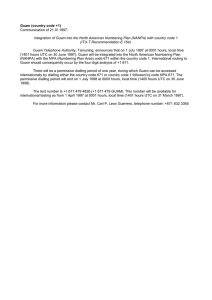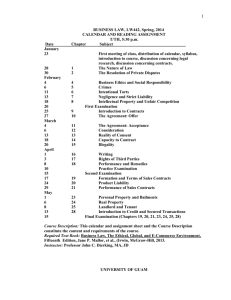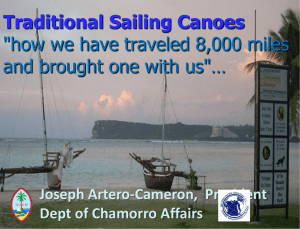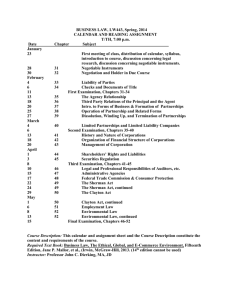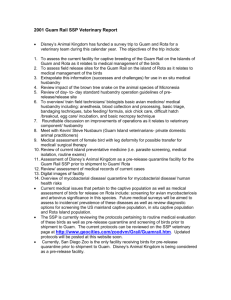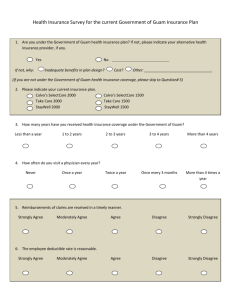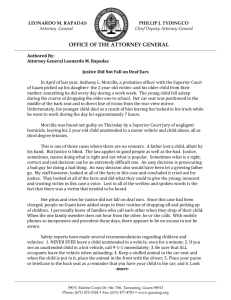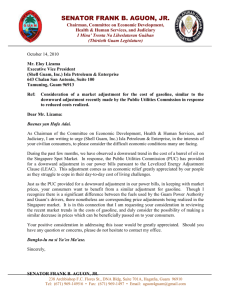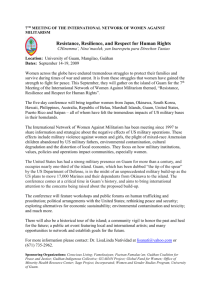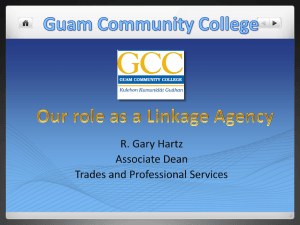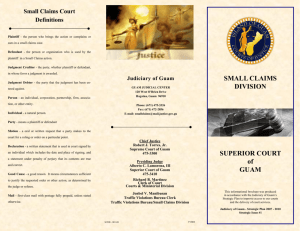Policy 101 Case Scenarios
advertisement
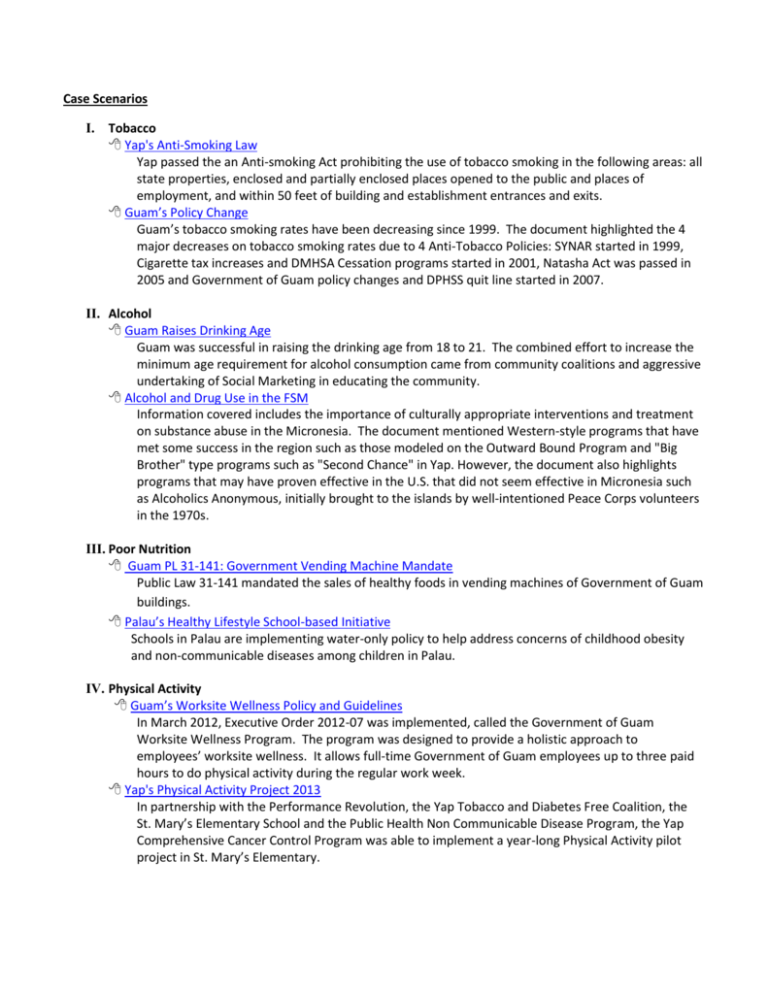
Case Scenarios I. Tobacco Yap's Anti-Smoking Law Yap passed the an Anti-smoking Act prohibiting the use of tobacco smoking in the following areas: all state properties, enclosed and partially enclosed places opened to the public and places of employment, and within 50 feet of building and establishment entrances and exits. Guam’s Policy Change Guam’s tobacco smoking rates have been decreasing since 1999. The document highlighted the 4 major decreases on tobacco smoking rates due to 4 Anti-Tobacco Policies: SYNAR started in 1999, Cigarette tax increases and DMHSA Cessation programs started in 2001, Natasha Act was passed in 2005 and Government of Guam policy changes and DPHSS quit line started in 2007. II. Alcohol Guam Raises Drinking Age Guam was successful in raising the drinking age from 18 to 21. The combined effort to increase the minimum age requirement for alcohol consumption came from community coalitions and aggressive undertaking of Social Marketing in educating the community. Alcohol and Drug Use in the FSM Information covered includes the importance of culturally appropriate interventions and treatment on substance abuse in the Micronesia. The document mentioned Western-style programs that have met some success in the region such as those modeled on the Outward Bound Program and "Big Brother" type programs such as "Second Chance" in Yap. However, the document also highlights programs that may have proven effective in the U.S. that did not seem effective in Micronesia such as Alcoholics Anonymous, initially brought to the islands by well-intentioned Peace Corps volunteers in the 1970s. III. Poor Nutrition Guam PL 31-141: Government Vending Machine Mandate Public Law 31-141 mandated the sales of healthy foods in vending machines of Government of Guam buildings. Palau’s Healthy Lifestyle School-based Initiative Schools in Palau are implementing water-only policy to help address concerns of childhood obesity and non-communicable diseases among children in Palau. IV. Physical Activity Guam’s Worksite Wellness Policy and Guidelines In March 2012, Executive Order 2012-07 was implemented, called the Government of Guam Worksite Wellness Program. The program was designed to provide a holistic approach to employees’ worksite wellness. It allows full-time Government of Guam employees up to three paid hours to do physical activity during the regular work week. Yap's Physical Activity Project 2013 In partnership with the Performance Revolution, the Yap Tobacco and Diabetes Free Coalition, the St. Mary’s Elementary School and the Public Health Non Communicable Disease Program, the Yap Comprehensive Cancer Control Program was able to implement a year-long Physical Activity pilot project in St. Mary’s Elementary.
